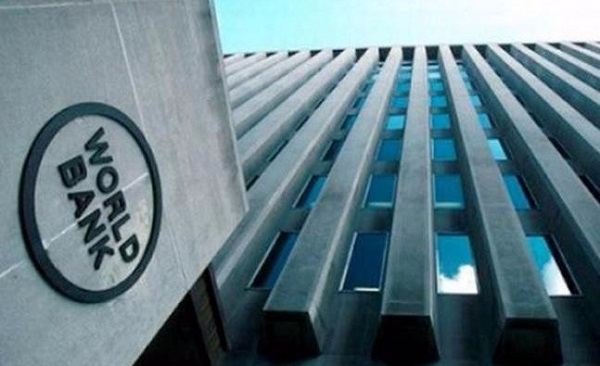The World Bank’s Board of Directors has approved a new Country Partnership Framework (CPT) with Romania for a five-year period (2019-2023).
The strategic lever of the World Bank Group’s role in achieving „high priority institutional reforms will be the focus of the program„. This is one of the „lessons” derived from the report on the previous period (2014-2018), according to the document.
„Greater attention should be paid to supporting the implementation of institutional reforms under the new Country Partnership Framework (CPT),” the World Bank (WB) report also says.
Formal achievements, such as the adoption of new laws and strategies, „are not enough to facilitate a sustainable institutional change,” is another conclusion from the analysis of the previous period.
„Strong and effective institutions are the key to sustaining Romania’s long-term growth, and poverty eradication will require more investment in education, health and better jobs,” said Tatiana Proskuryakova, World Bank Country Director for Romania and Hungary.
In order to achieve the necessary institutional reforms, the following will prove „critical”:
- a permanent communication with the Government’s partners,
- identifying and supporting „champions”,
- technical assistance and other support provided to the implementation.
IFC and public-private partnership
At the same time, IFC (International Finance Corporation, the WB direct investment division) „faced challenges in supporting the development of PPP projects and the extension of municipal funding partnerships.”
Recently, the Ministry of Transport has proposed to the Government to abandon the assistance of the World Bank in building the A3 Ploiesti-Comarnic-Brasov highway, and chose to use the PPP method for the fourth time and after another three unsuccessful attempts in the last 15 years.
„A major problem faced by the IFC is the absence of a functioning PPP law (in the meantime, approved by the Parliament but still without implementation rules) and the lack of the corresponding institutional capacity to support its implementation. In municipal finances, issues such as the governance, as well as the availability of a domestic financing at competitive prices, restrict the IFC’s footprint,” the WB also said.
Partnership benchmarks
The strategy included in the partnership framework is „to address the key issues affecting a sustainable and inclusive growth” and will have the following priorities:
- investment in people,
- support a more dynamic development of the private sector
- a higher degree of preparedness for natural disasters and climate change.
Objectives of the partnership (CPF) according to the country diagnosis (SCD)
 The Country Partnership Framework (CPT) with Romania will follow three main areas and focus on improving the human capital, developing the private sector and competitiveness, as well as on the resilience to shocks.
The Country Partnership Framework (CPT) with Romania will follow three main areas and focus on improving the human capital, developing the private sector and competitiveness, as well as on the resilience to shocks.
Among specific objectives, we notice:
- Improving the transition to tertiary education for poor and vulnerable categories;
- Improving the access to modern health services;
- Connecting poor and vulnerable categories to jobs;
- Strengthening the capacity to build the transport infrastructure;
- Improving the capacity to attract private investment at the regional and local level;
- Accelerating the capital market development and the access to financing;
- Improving the level of national preparedness against natural disasters and climate change.
Initial benchmarks
- Romania’s average economic growth rate is 2.8% over the period 2010-2017, but „despite 11 years within the European Union, the quality of the infrastructure is unsatisfactory, which impose constraints on investment and productivity in sectors such as production, agriculture and tourism”.
- The private sector is small but dynamic, with limited access to financing (especially SMEs).
- More worrying is that, despite the sharp increase, the level of the average income „did not converge with the European average level, the poverty reduction rate was low, and the social and regional disparities are substantial and increasing”.
- Over 25% of Romania’s population lives on less than USD 5.50 a day, which is the highest rate of poverty in the EU, says the WB statement.
Obstacles to sustainable development
The „systematic country diagnosis” that was the basis of the new framework of the WB partnership with Romania has identified the most critical constraints against the sustainable economic growth and the distribution of prosperity, according to the document quoted:
- The incomplete institutional transition and the high political and legislative volatility in the last 25 years have reduced the confidence in the state and undermined the social contract;
- The Government’s limited capacity to implement the public policies to achieve the potential of the economy;
- The institutional weakness keeps the country from benefiting entirely from the financial support of the European Commission;
- Deficiencies in the public service activity (especially for the poor) are often caused by:
- inefficient policies and low administrative capacity
- counter performance of state owned enterprises
- Financial markets are developed superficially and do not mobilize enough resources to boost growth;
- Insurance services face regulatory and capitalization problems;
- The private sector is based on a small number of stable businesses;
- The business environment is unstable, a direct consequence of institutional failures:
- frequent changes to the Tax Code (200 only in the last 2 years),
- lack of consultation with the private sector
- the short time made available to enterprises to adapt leads to delays in investment decisions.
World Bank in Romania
Since the opening of its Bucharest office in 1991, the World Bank has provided financing that amounts to over USD 13.6 billion in total (loans, guarantees and grants) in all sectors of the Romanian economy.
The current portfolio of the Bank includes investment loans, analytical activities and technical assistance for supporting Romania’s reform priorities.
Since Romania’s accession to IFC, long-term funding in Romania amounted to USD 2.81 billion, including USD 606.8 million mobilized from WB partners for 93 projects in various sectors.
IFC has supported trade exchanges of over USD 900 million through its trade financing program.










